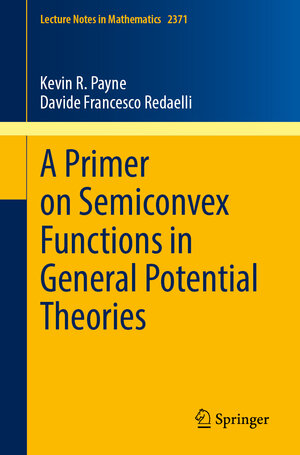
A Primer on Semiconvex Functions in General Potential Theories
von Kevin R. Payne und Davide Francesco RedaelliThis book examines the symbiotic interplay between fully nonlinear elliptic partial differential equations and general potential theories of second order. Starting with a self-contained presentation of the classical theory of first and second order differentiability properties of convex functions, it collects a wealth of results on how to treat second order differentiability in a pointwise manner for merely semicontinuous functions. The exposition features an analysis of upper contact jets for semiconvex functions, a proof of the equivalence of two crucial, independently developed lemmas of Jensen (on the viscosity theory of PDEs) and Slodkowski (on pluripotential theory), and a detailed description of the semiconvex approximation of upper semicontinuous functions.
The foundations of general potential theories are covered, with a review of monotonicity and duality, and the basic tools in the viscosity theory of generalized subharmonics, culminating in an account of the monotonicity-duality method for proving comparison principles. The final section shows that the notion of semiconvexity extends naturally to manifolds. A complete treatment of important background results, such as Alexandrov’s theorem and a Lipschitz version of Sard’s lemma, is provided in two appendices.
The book is aimed at a wide audience, including professional mathematicians working in fully nonlinear PDEs, as well as master’s and doctoral students with an interest in mathematical analysis.



